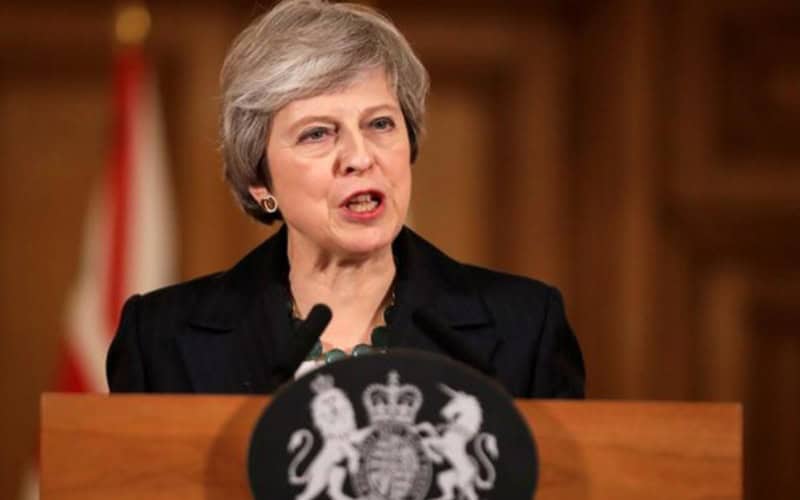London: Ruling out the possibility of a second referendum, UK Prime Minister Theresa May strongly defended her draft Brexit agreement in front of the British Parliament and in a press conference held in the wake of resignations by prominent ministers including Dominic Raab, who served in May’s government as the British Brexit Secretary.
“This is a Brexit that delivers on the priorities of the British people. In achieving these objectives, I’m also determined to protect the things that are important to us. Protect the hundreds of thousands of manufacturing jobs that put food on the tables of working families right across the UK. Those jobs rely on cross-border trade in goods with parts flowing easily in and out of the UK, allowing for integrated supply chains. This agreement protects that. Protects the close security cooperation that keeps us safe-this agreement does that.
Protect the integrity of the United Kingdom and peaceful settlement in Northern Ireland by leaving the EU as one United Kingdom and having no hard border between Northern Ireland and Ireland,” May said at a press conference.
She completely ruled out the possibility of a second referendum at the presser on the same day that she faced the British parliament, where calls for no-confidence against the Prime Minister were led by Conservative MP Jacob Rees-Mogg.
Rees-Mogg launched a tirade against May and her draft at the British Parliament, submitting a letter of no-confidence against the Prime Minister.
Four UK ministers holding key posts such as UK’s Brexit negotiator Raab handed in their letters of resignation on Thursday citing differences with the draft deal.
Quoting two reasons, Raab tweeted that he “cannot in good conscience support the terms proposed for our deal with the EU,” alongside a copy of his resignation.
“First, I believe that the regulatory regime proposed for Northern Ireland presents a very real threat the integrity of the United Kingdom. Second, I cannot support an indefinite backstop arrangement, where the EU holds a veto over our ability to exit. The terms of the backstop amount to a hybrid of the EU Customs Union and Single Market obligations. No democratic nation has ever signed up to be bound by such an extensive regime, imposed externally without any democratic control over the laws to be applied, nor the ability to decide to exit the arrangement.
That arrangement is now also taken as the starting point for negotiating the Future Economic Partnership. If we accept that, it will severely prejudice the second phase of negotiations against the UK,” the British negotiator said while telling the Prime Minister that she deserves a British Secretary “who can make the case for the deal you are pursuing with conviction.”
Esther McVey, the Work and Pensions Secretary, Shailesh Vara, Minister for Northern Ireland and Brexit Minister Suella Braverman resigned along with Raab, just a day after May confirmed her Cabinet’s support for the draft deal agreed on by negotiators from both sides on November 13.
The European Union’s chief negotiator Michel Barnier had held a press conference after the EU published the entire draft agreement on November 14, reaffirming that the “UK will remain our friend, our ally and our partner,” after highlighting key clauses and protocols of the draft deal.
On June 23, 2016, citizens of the United Kingdom had voted to leave the EU after which the UK had formally notified the European Council of its exit by evoking Article 50 of the Lisbon Treaty on March 29, 2017.
[source_without_link]ANI[/source_without_link]

